Scientists struggle to complete climate impacts report
- Published
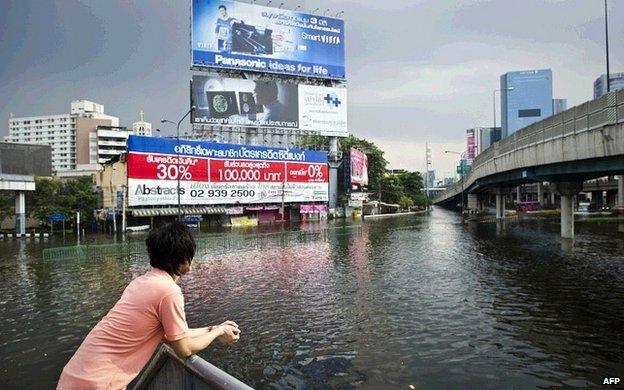
Parts of Asia are expected to be particularly susceptible to future flooding
Negotiators worked through the night here in Yokohama in an effort to complete their review of a key report on the impacts of climate change.
At stake is a dense 29-page summary detailing the effects of climate change on the planet over the next 100 years.
Several hundred members of the UN's climate panel have been deep in deliberations since Tuesday, with many sessions running very late.
The report is the first such assessment since 2007.
The tired attendees left the conference centre at eight thirty in the evening as the lights were dimmed to commemorate Earth Hour.
But 60 minutes later they trooped back in to continue their word-by-word analysis of the contents.
The report is the second of three analyses developed by international teams of researchers. The first, published last September detailed the mechanics of climate change, explaining that warming was "unequivocal" and humans were behind it.
This new document being prepared here in Japan will detail the impacts and vulnerabilities to rising temperatures that the world faces over the coming century.
It will also highlight how much we can reduce the scale of these effects by adaptation.
Several versions of the report, called the Summary for Policymakers, have already been leaked but the final version won't be released until everyone - scientists and governments - are agreed on its contents.
There are likely to be a number of significant changes since the previous assessment came out in 2007.
There are now far more observations, more scientific studies on the effects of rising temperatures on humans and the species with which we share the planet. Running to 30 chapters in all, many delegates felt that it was the scale of the data that was causing delays.
There are two new chapters detailing impacts on the oceans. There are chapters on human health, on food security and conflict, but also four chapters on how we can adapt to the effects.
"We have a lot more information," said Dr Chris Field, who is the co-chair of the working group that is behind the report.
"The way I see it, we have a much sharper take on aspects of the issue that are serious but we also have a much sharper focus on the things that can be done to reduce the risks."
The summary is likely to say that the observed impacts of climate change are "widespread and consequential".
Whether it is increased melting of glaciers, or tree mortality, or impacts on rainfall patterns, the report says that the very real effects of warming are happening in the here and now.
Over the next 20 to 30 years, the report highlights some important impacts that we have little chance of avoiding, given the level of warming the world is already committed to, say the scientists.
These include threats to some "unique and threatened systems" even at 1C.
Risks from extreme weather events, including heat waves and flooding are also high at 1C.
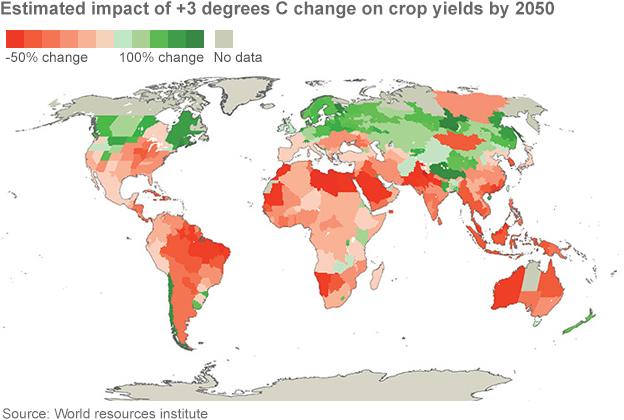
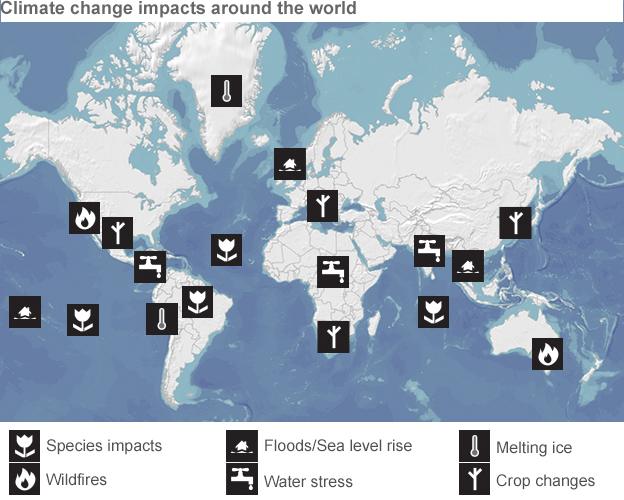
At 2C, there are "very high risks" for Arctic sea ice and coral reefs.
The report is, according to authors, likely to be more doubtful of the benefits of warming on agriculture than its predecessor.
It is expected to say that yield losses of up to 2% per decade will occur for the rest of this century, at a time when population is set to rise sharply.
"There is a lot more literature on the response of agriculture to a changing climate and we are able to make a more comprehensive assessment than before, based on observations and model calculations," said Dr Field.
"The science on crop yields and especially on food security is getting to be a lot more actionable and usable."
Flood risks for people living in Asia are highlighted as a particular vulnerability.
The report talks about impacts on human health, how mortality increases with greater heating and how species the world over are likely to respond by moving towards the poles.
Fish will move, some stocks will be significantly impacted and people who depend on them for food will have to find other sources of protein.
The threat of the oceans becoming more acidic is spelled out as are threats to human security and migration.
The report spells out the likely impacts at different levels of warming in different parts of the world.
"We've projected climate change impacts at different levels of temperature rise, at levels of 2C and 4C and now beyond," said Dr Rachel Warren from the University of East Anglia, UK.
"We've also looked at how people and biodiversity can adapt to climate change. This notion of vulnerability is embedded in the concept of the report."
Adaptation is a key element of the report, with clear tables showing that what are currently classed as high-risk impacts could be reduced to low risks, if steps are taken.
Overall there is a greater attempt to set climate change as one of a number of threats facing people now and in the future.
"Once we think of the challenge as one of managing risk, rather than of, oh once we know for sure what's going to happen then we can do something, it becomes much more tractable," said Dr Field.
"It becomes much more a question of figuring out what are the smart and effective things to do."
Follow Matt on Twitter, external.
- Published29 March 2014
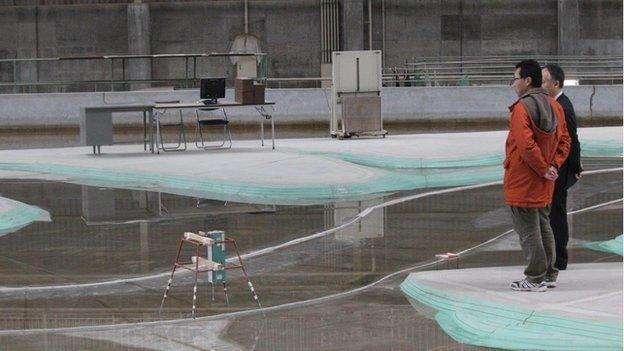
- Published28 March 2014

- Published25 March 2014
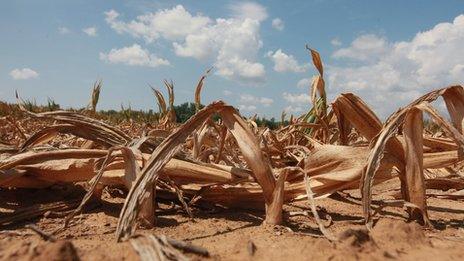
- Published26 March 2014
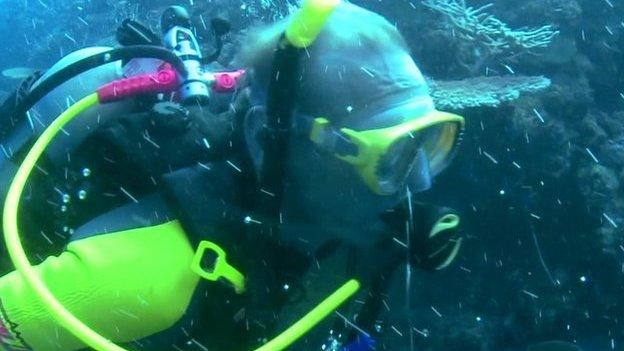
- Published25 March 2014